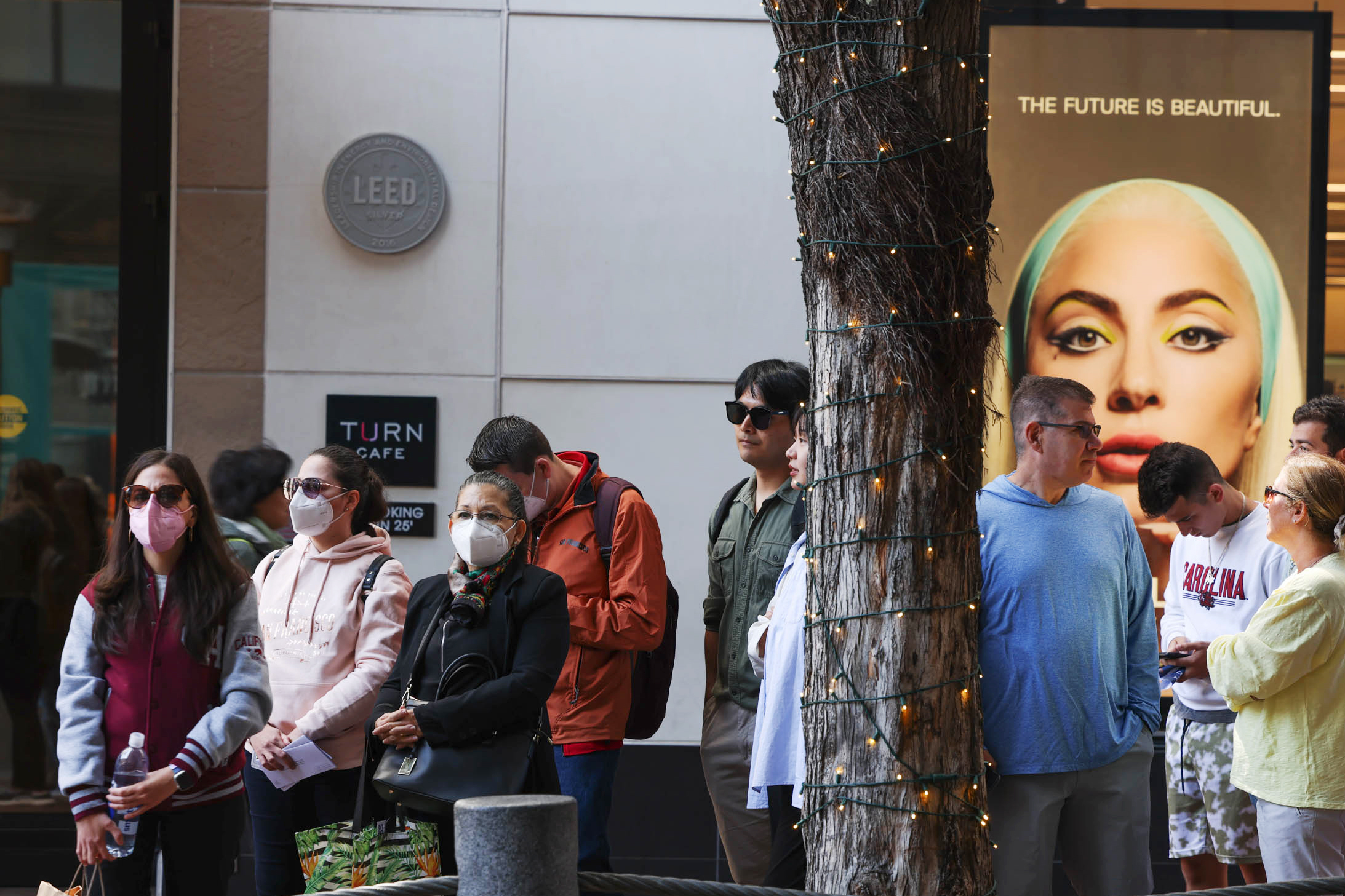A summer Covid surge is continuing to infect thousands in San Francisco, with some signs that a swirl of variants has produced the city’s biggest wave to date.
But the response on the ground is a mixed bag: Weary and longing for normalcy, many San Franciscans are dropping masks and other Covid precautions, while others remain worried about the risk of reinfections and long-term illness. And it’s all a little crazy-making for locals and public health experts alike.
Yuka Ioroi, a co-owner of Richmond restaurant Cassava, has continued to require maximum precautions including masking for employees and full vaccinations (including boosters) for customers who dine indoors. She’s baffled by what she sees as a lackadaisical attitude towards the current surge.
“People know that this is the most transmissible and vaccine-evading variant, but people don’t want to wear masks. I just don’t understand that psyche,” Ioroi said.
Adding to the sense of confusion is seemingly stale public health guidance around reinfection, which previously suggested that people who recovered from Covid reinfection were well-protected against reinfection for around three months. The highly infectious Omicron BA.5 variant threw that out the window: In the current surge, people who had gotten infected with an earlier Omicron variant were still at risk of catching BA.5.
“An enormous number of people are getting sick, and it’s incredibly disruptive at best, but at worst there’s a risk of ‘long Covid’ or the consequence of possibly dying from the virus,” said Dr. John Swartzberg, an infectious disease expert at UC Berkeley.
Early research into ‘long Covid’ points to the possible risk of long-term health impacts from repeat infections. Yet as the pandemic drags on—even in historically Covid-cautious San Francisco—the response has grown increasingly fragmented both at the policy level and at the individual level.
Early on, Bay Area counties moved in lockstep on masking, but that’s no longer the case: Alameda County was the only local jurisdiction to reinstate a mask mandate in June, but dropped the rule less than a month later. There’s no sign yet that San Francisco plans to reinstate a masking requirement, though the city’s Department of Public Health calls recent trends “concerning” and strongly recommends that people wear masks in indoor, public settings.
“SFDPH is continuing to evaluate options [and] will and look toward a regional approach,” wrote a DPH spokesperson in an email.
The good news is that, despite high case counts, hospitalizations and deaths have remained low compared to prior surges. Policymakers use hospitalizations as a metric for considering a public health response, so there’s little apparent appetite for bringing back mandates and restrictions on activity.
Swartzberg worries about the emergence of a new variant that combines the immune-evasive qualities of Omicron with the severity of the Delta wave. If that were to happen, he said, the current complacency towards the virus could mean a delayed public health response.
Swartzberg said he’s feeling a bit of “cognitive dissonance” at this stage of the pandemic.
“In spite of a large number of cases, an awful lot of people think it’s worth it to go back to our normal lives and take on the risk of getting Covid,” Swartzberg said. “Another way to frame it is that there’s the science of what’s happening, and then there’s the human response. I’ve heard it said that we’re the ones who define whether there’s a pandemic or not, not the virus.”
That was the prevailing philosophy for Rodolfo Collin, who spent Monday touring the city with his aunt and mother. The Brazil native, who was visiting San Francisco for the first time, said he was largely unconcerned with rising case counts because he is fully vaccinated. He said he’d already had Covid twice anyway.
“We have to learn to live with it, because I don’t think it will ever really go away,” Collin said.
Marco Lopez, a community ambassador posted at the Powell Street cable car turnaround, estimated that only around 30% of the people waiting in line wear masks. While he speaks to dozens of people a day at his job, questions about Covid and pandemic restrictions are far and few in between.
He said he remains “moderately concerned” about the pandemic and that he’s personally in favor of reinstating a mask mandate, particularly on public transit.
“If the cases are going up, and it would make us more safe and secure, then why not?” Lopez said. “It’s like a community thing: we can all make a difference with the virus.”
